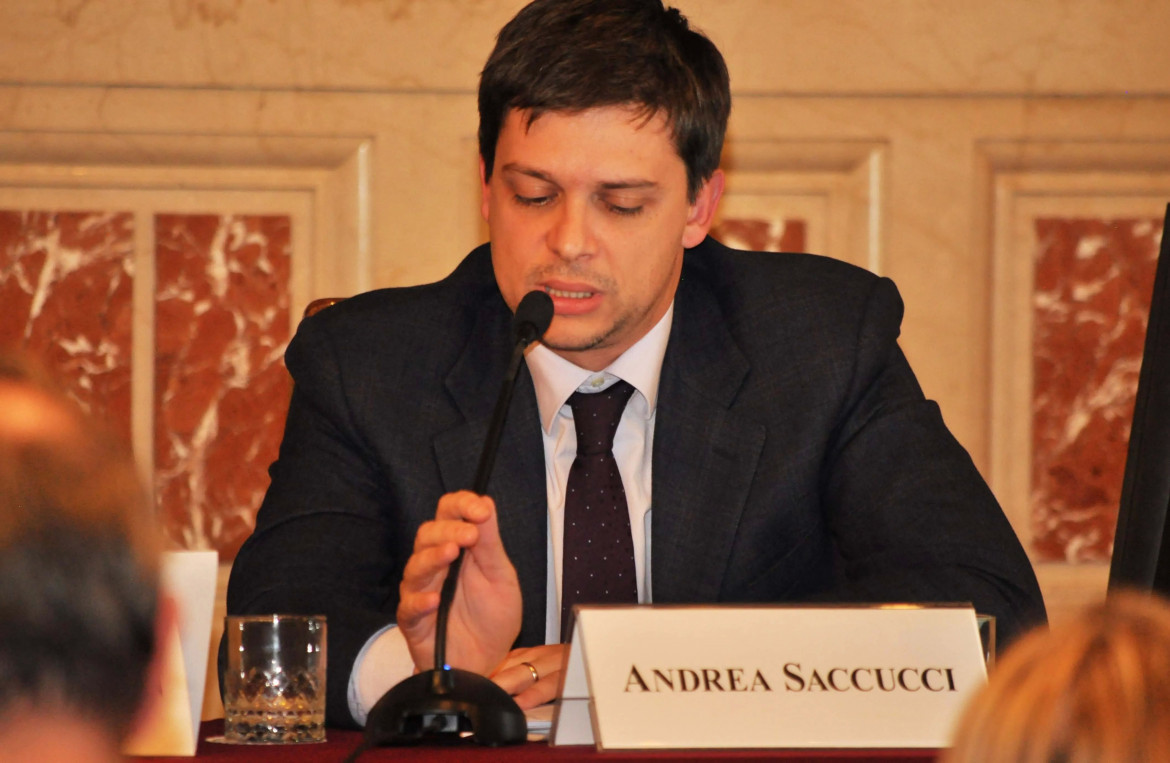Interview
Attorney Andrea Saccucci: On the Albania plan, ‘EU norms prevail’
'The primacy of EU law over domestic law was established a very long time ago, and is now recognized in our legal system, including at the Constitutional level.'

The main obstacles to Italy’s migrant detention centers in Albania come from EU law, namely the directives on asylum seekers and the recent Luxembourg Court ruling on safe countries.
Thus, amid attacks on judges’ personal lives and the traditional accusation of “red justices,” the desire for “legislative sovereignty” has re-emerged on the Italian right (see, for instance, Massimo Franco in the Corriere della Sera). The dream being revived is that of the primacy of national law over EU law. Lega Senator Claudio Borghi has called for a fact-finding investigation to “clarify the operation of EU law in national legal systems.”
We spoke with Andrea Saccucci, a lawyer specializing in national and international human rights litigation, who defeated the Berlusconi government on illegal repatriations to Libya, but also defended “the Knight” himself before the ECHR against the claim that he could not run for office. According to him, the matter is clear: “EU norms prevail. That is an uncontroversial fact.”
It seems that some from the government find European laws unbearable. Is there any way to go around them or subordinate them to national ones?
The primacy of EU law over domestic law was established a very long time ago, and is now recognized in our legal system, including at the Constitutional level. It is settled that membership in the EU implies this principle, which has been enshrined by the Constitutional Council in reference to Article 11 of the Constitution, which allows Italy to enact limitations on its sovereignty.
Laws contrary to EU norms have been passed in Poland and Hungary, for example on civil rights and judicial independence. Do you rule out this happening in Italy as well?
At the moment, yes, precisely because our legal system is applying the principle of EU primacy. There is no reason to doubt that Italy will live up to the commitments and obligations arising from its membership in the Union. Also because, in such a case, this would require a change in constitutional norms, which I do not think is likely. The opposite principle would need to be imposed: the primacy of domestic law. At that point, the opening of an infringement procedure would be a foregone conclusion, to the point that even Italy's membership in the EU would have to be called into question.
The latest episode that has rattled the government is the Bologna court's preliminary referral to the ECJ in Luxembourg. Was the example of Nazi Germany used in the court ruling an exaggerated one, or was it part of a well-founded argument?
Beyond the particular arguments used by the court who referred the case, the legal reasons are absolutely solid. After the harsh criticism of the Rome court for its decision not to validate the detentions in the Albanian centers, a preliminary referral, that is, the activation of the cooperation procedure between Italian judges and the European Court, is the most appropriate way to clear the field of any interpretative ambiguities or attempts at instrumentalization.
But what is the issue with these “safe countries” from a legal point of view? The government can’t seem to figure out how to solve it.
The problem arises from the Italy-Albania protocol: it applies only to migrants who are eligible for expedited border procedures. That is, it only applies to asylum seekers from safe countries. The list of such countries was drawn up by the Foreign Ministry and included states that our government considers to be overall safe, even if they are not safe in certain parts of their territory or for certain categories of people. Instead, the Rome court's non-approval rests on the interpretation of a recent EU Court ruling, which prompted the Italian courts to reject the government’s list. This has prevented border procedures and the detentions of asylum seekers in Albanian centers. So, the definition of a “safe country” is a thorn in the side of that project, which involved extraordinary economic commitments.
So far, EU law has been a greater safeguard for asylum seekers than national policies. Will this be the case when the new EU pact comes into effect?
We all hope so. EU law has always been a bedrock safeguard for fundamental rights, and it is proving to be so in our times as well. Obviously, it is not immune to the influence of the political orientations that come to power in the member states. In recent years, there has been a gradual narrowing of the protections offered by European law. Perhaps this climate explains why the EU has not yet taken a clear-cut position on the Albania project.
Originally published at https://ilmanifesto.it/lavvocato-andrea-saccucci-prevalgono-le-norme-ue-a-meno-di-lasciare-lunione on 2024-11-02
